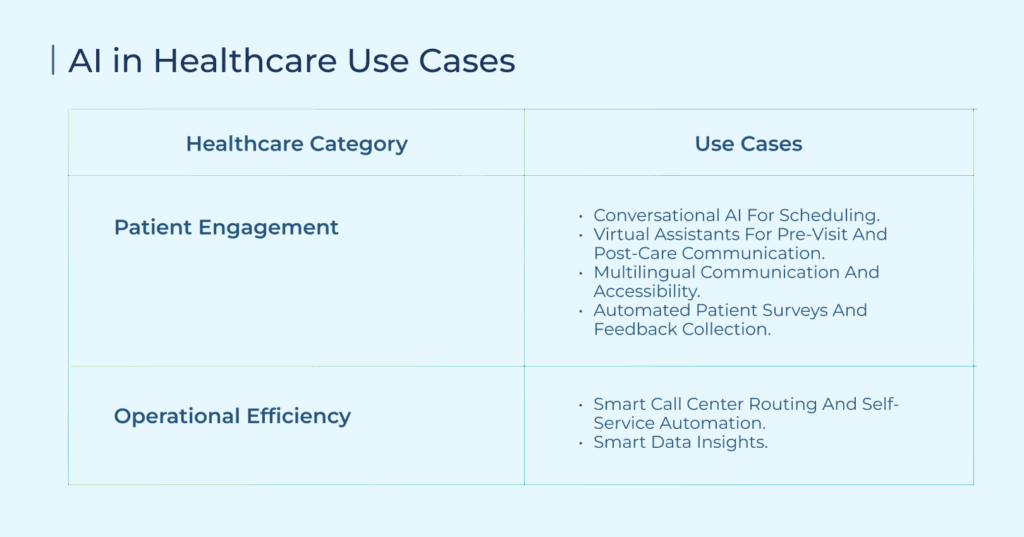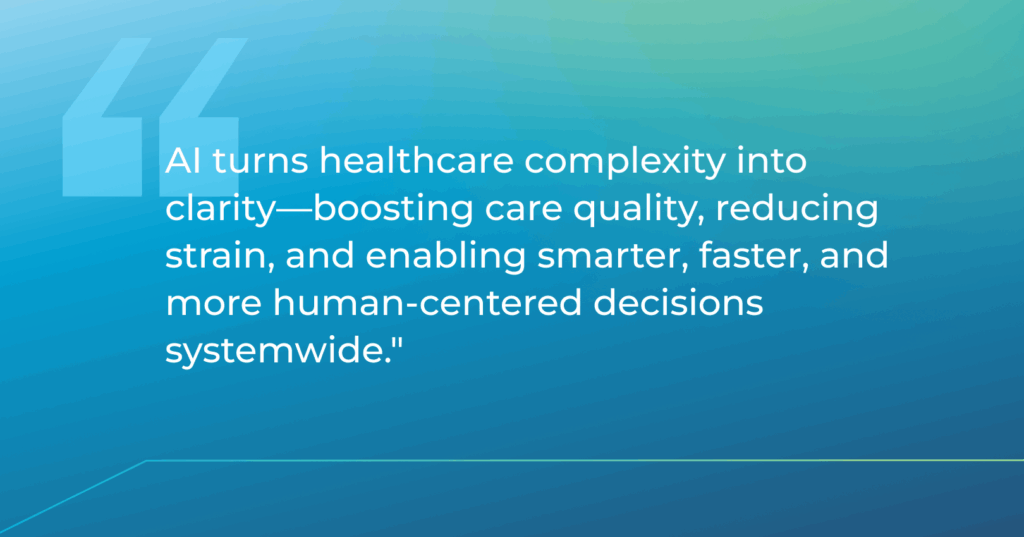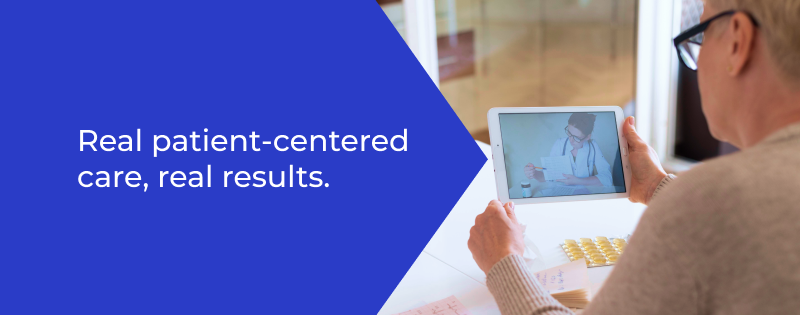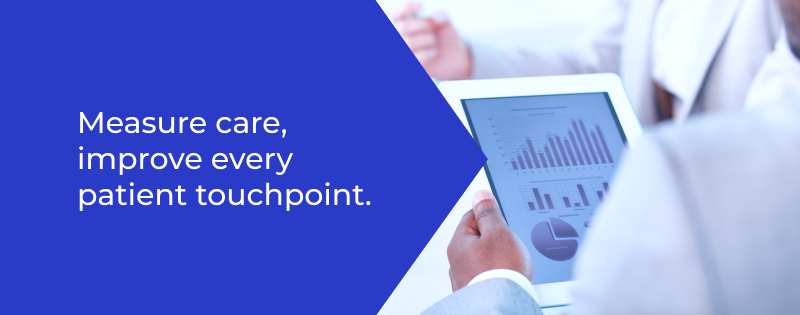Your patients are not just passing the time in your waiting rooms. They're already forming…

AI Solutions in Healthcare: Use Cases, Benefits, and Examples
AI and its related tech have changed the way healthcare works across all departments and specialties. It’s helping doctors catch problems earlier, easing the pressure on staff, and making care more personal for patients. In this blog, we’ll walk through practical examples of AI in healthcare, showing how these tools are being used today to solve real challenges, not just in theory, but in action.
What Are the Key Drivers of AI Adoption in Healthcare?
There are four main factors that drive healthcare organizations toward AI solutions in healthcare.
Let’s start with staffing shortages. We’re already experiencing a significant shortage of a qualified workforce. Rather than being stuck in a perpetual cycle of hiring and training, AI systems enable providers to maintain quality care with fewer human resources. AI also improves hiring and onboarding processes while reducing administrative burden, which ties in with the previous argument.
The surging cost of healthcare is another driving factor. Providers are always looking for ways to reduce their operational expenses, but without sacrificing the quality of care. AI offers both by reducing costs through technology while creating value.
Patients have become increasingly demanding over the past decade regarding digital convenience. They want faster, smarter solutions. They also want to take charge of their health through phones and self-service tools. This shift is already becoming mainstream with all major healthcare organizations using AI-led tools to improve patient interactions and health outcomes.
Finally, AI opens doors for providers to fully achieve the goals of value-based care via proactive and personalized patient care. The more advanced AI tools even enable predictive measures, improving diagnostic accuracy, treatment plans, and internal operations.
AI in Healthcare Use Cases
AI-driven healthcare spans multiple functions and departments, all of which directly impact patient experience. Below are some major use cases that equip providers to address modern healthcare challenges.

Patient Engagement and Communication Use Cases
AI-led automation and personalized interactions make a powerful combination for providers to improve patient engagement.
More advanced systems deploy conversational AI assistants that interact with patients just like a human agent, but even better. These intelligent virtual assistants (IVAs) are online 24/7, and automate all routine inquiries and guide patients through their journey.
Conversational AI for Appointment Scheduling
IVAs are the perfect front desk assistants. They lead human-like conversations with patients, helping them manage their appointments.
The AI scheduling system then automatically updates your calendars. There’s no human involvement needed unless the patient requests a specialist. That being said, IVAs are smart enough to escalate cases themselves when necessary.
Virtual Assistants for Pre-Visit Instructions
Continuing with the benefits of IVAs, patients can also be briefed in advance so that they come fully prepared.
If someone has a question about what to bring to their appointment or wants to fill out their forms ahead of time, they can simply ask. The AI chatbot responds instantly, sharing the right links or details. There’s no need to call or wait on hold.
It’s a more convenient experience and a big step toward letting patients take care of the basics on their own time, without putting extra work on your staff.
Multilingual and Accessible Communication
Healthcare providers need to be fully prepared to handle non-English speakers. AI helps here by breaking down all language barriers, translating in real time for both staff and patients. There’s no need to hire and train groups of native speakers.
This accessibility covers all types of inquiries. IVAs not only handle basic questions like billing and appointments, but also complex ones like prescriptions in multiple languages. Patients don’t even have to place a phone call. They can get their desired information through simple texts in their language.
Survey and Feedback Collection Automation
Collecting feedback at every touchpoint from all patients would be a nightmare without automation. The system automatically prompts patients to fill out a quick survey on their phones or tablets right after they have been delivered a service.
These automated survey systems increase response rates by personalizing question formats. They also then analyze their answers to deliver an overview to the management.
Broadcast Messaging and Two‑Way Campaigns
AI-powered outreach makes it easy to connect with large groups of patients at once. This is helpful for campaigns like vaccination alerts, sharing preventive care tips, or closing care gaps. Messages aren’t just one‑way either. Patients can reply, book appointments, or ask questions right in the same conversation, keeping the interaction simple and seamless.
Operational Use Cases
AI is helping healthcare organizations run more efficiently by automating routine admin work, cutting costs, and making better use of staff and resources.
Call Center Automation and Smart Routing
Thanks to smarter routing and self-service options, healthcare organizations can see a significant reduction in their overall call volumes. Most of the calls can be automated via smart chatbots or IVAs, allowing human agents to focus on more complex matters.
In the case of escalated cases: whenever a patient makes a call, their needs are assessed by the system to connect them to the most appropriate (and available) department. This also reduces wait times to improve efficiency as well as cost reduction.
Data Insights and Administrative Benefits
A single dashboard can give you a complete picture of how your operations are running behind the scenes. This reduces a lot of strenuous managerial work since the AI will tell you about potential service gaps and areas ripe for improvement. You can avoid costly mistakes or fix problems that may go on to become expensive problems.
Benefits of Using AI Solutions in Healthcare
The great thing about AI solutions in healthcare is that you remove all manner of guesswork in favor of measurable gains. You position your organization for future growth by addressing critical healthcare challenges.
1. Better Patient Outcomes Through Informed, Timely Decisions
AI solutions provide clinicians with immediate access to patient data analysis, risk assessments, and treatment recommendations. This enables care teams to intervene faster when conditions require immediate attention.
2. Patient Experience Is Improved
You improve your value by delivering more accessible, efficient, and personalized care. Automated scheduling, instant responses to common questions, and tailored instructions create more convenient healthcare interactions, improving patient satisfaction.
3. Staff Can Focus More on Human-Centered Care
Since automation takes the lead on routine admin tasks, your staff is free to spend more time with patients, where it matters most. They can then use the skills they trained for instead of trying to rush through mountains of paperwork.
4. Care Delivery Is More Consistent and Standardized
AI ensures that your standard of care is kept at a certain degree of quality. There are no variations in diagnoses or treatment plans. Every patient is handled without bias, with data-backed recommendations.
5. Operational Costs are Reduced
Less manual work, fewer phone calls, and streamlined workflows mean lower costs and more efficient resource use.
6. Organizational Agility in a Changing Healthcare Landscape
AI helps systems respond faster to shifting needs, whether it’s a sudden patient surge or evolving compliance standards.
7. No Scalability Bottlenecks
AI workflows, like triage, reminders, or claims, scale instantly without needing extra staff or infrastructure.

How TeleVox Transforms Patient Engagement With AI-Powered Solutions
TeleVox is on the front lines of a new era in healthcare communication. We’re turning routine interactions into smooth, meaningful conversations that keep patients engaged and providers in control. And driving it is the intelligence of conversational AI, built to work the way healthcare needs.
Our SMART Agent doesn’t just respond, it understands, guides, and takes action in real time. Whether that be for scheduling, billing requests or answering complex questions. It handles everything without adding to your staff’s workload.
If you’re ready to engage every patient like they matter (because they do), it’s time to see what our AI-powered concierge can do. Schedule a demo and experience it for yourself.



